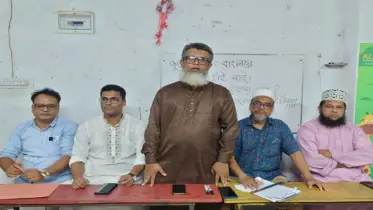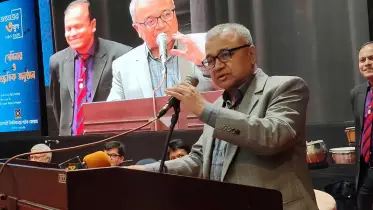একটি দূতাবাসের ইংরেজি শিক্ষক
TESL Certified English Trainer (UK)
www.ziahasan.com
(পর্ব : ২০৭)
Formation of questions
ইংরেজীতে আমরা মূলত তিনটি উপায়ে প্রশ্ন করতে পারি। আজ এই তিনটি পদ্ধতি নিয়ে বিস্তারিত আলোচনা থাকছে।
Bringing the auxiliary verb at the beginning of the sentence (auxiliary verb কে বাক্যের শুরুতে নিয়ে এসে)
Example:
You are listening to me. ~ Are you listening to me?
Fish can’t fly. ~ Can fish fly?
He should write an application. ~Should he write an application?
Mr. Harry will be late. ~ Will Mr. Harry be late?
If there is no auxiliary verb in the sentence then we use ‘do/does/did’ to form question. (ev‡K¨ auxiliary verb bv _vK‡j ev‡K¨i ïiæ‡Z
‘do/does/did’ e¨envi K‡i)
I know the boy. ~ Do I know the boy?
John loves ice cream. ~ Does John love ice cream?
(Since ‘do’ has taken the ‘es’ with it, there will be no s/es with the main verb)
Mr. Modi, India’s Prime Minister, visited Bangladesh.
~ Did Mr. Modi, India’s Prime Minister, visit Bangladesh?
(If the sentence is in past tense, then we have to use did. And as ‘did’ is a past form, the verb in the sentence will no longer be in past form, it will be in the present form)
By using ‘WH” words: (Who, What, When, Why, Where, Whose, Which, How)
Wh word + auxiliary verb + subject + verb
Every morning Mr. Arif walks for 30 minutes in the Ramna park to stay fit.
What does Mr. Arif do every morning?
When does he walk?
Why does he walk every morning?
Where does Mr. Arif walk?
Who walks every morning?
(we can make questions with or without auxiliary verb after ‘who’; e.g. Who is a doctor here? Or, Who knows the answer?)
Quote on life:
"Your mind will answer most questions if you learn to relax and wait for the answer." ~ William S. Burroughs
(প্রিয়পাঠক, ভালো থাকুন, ভালো রাখুন সবাইকে)
ঢাকা, বাংলাদেশ শনিবার ১৯ জুলাই ২০২৫, ৩ শ্রাবণ ১৪৩২








